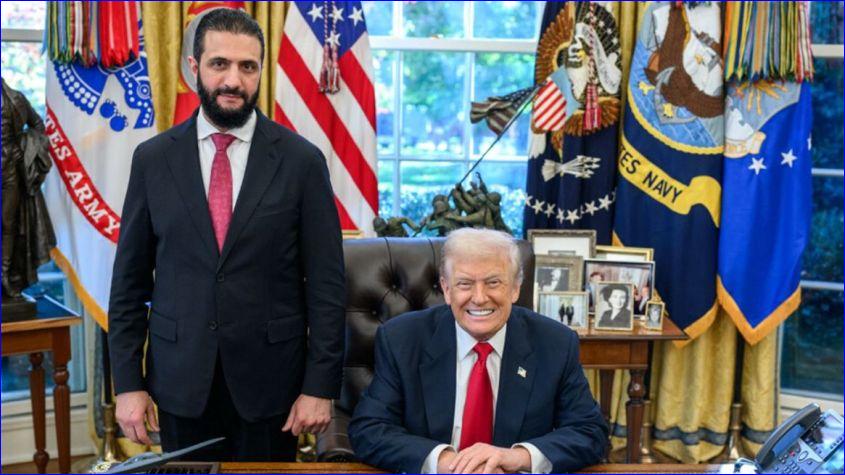


Their warning to the president was clear: "The future of Syria's minorities depends on whether the revolution's victory is followed by justice or replaced by another form of tyranny." Ibrahim and Ghazal issued a strong moral appeal, insisting that the freedom and safety of Syria's long-persecuted religious and ethnic groups must not be sacrificed for political expediency.
The two authors -- both respected advocates for minority rights -- called on Washington to ensure that President Ahmad al-Sharaa's transitional government, which came to power in December 2024 after toppling Bashar al-Assad, upholds democracy and pluralism. "Syria is not yet realizing the fruits of its valiant uprising," they warned, arguing that any easing of sanctions must be tied to verifiable progress on inclusion and accountability. "Sanctions relief must remain contingent on demonstrable accountability, especially for crimes committed against Christians, Alawites, Kurds, Druze, and other vulnerable groups."
Under the National Defense Authorization Act, Syria is required to report to the US government every 180 days on measurable progress toward ending violence and discrimination against religious minorities. "Only through such mechanisms can Washington ensure that engagement with Damascus strengthens reform rather than rewarding regression," Ibrahim and Ghazal wrote.
"What they do to Christians in the Middle East is disgraceful"
Whether President Trump will heed Ibrahim and Ghazal's call remains uncertain. During his first term, Trump was outspoken about the plight of Christians in the Middle East. At a press briefing on the Abraham Accords between Israel and the United Arab Emirates, he said Christians had been "treated horribly and very unfairly," calling their persecution "criminal" and "beyond disgraceful." He added, "If I had absolute proof ... I would go in and do a number to those countries like you wouldn't believe; what they do to Christians in the Middle East is disgraceful."
Still, there is skepticism whether the White House would press al-Sharaa on these issues. The complete embrace of Ahmad al-Sharaa by the Trump administration, despite the ongoing massacres, kidnappings, and intimidation of Alawites and Christians, suggests the worst-case scenario -- one reminiscent of Iraq after the 2003 US invasion, when promises of protection gave way to chaos and persecution.

or register to post a comment.